Tour de France: Sagan speaks out about safety after slow ride to Angers
'I thought at one time that we'd stop for a coffee'
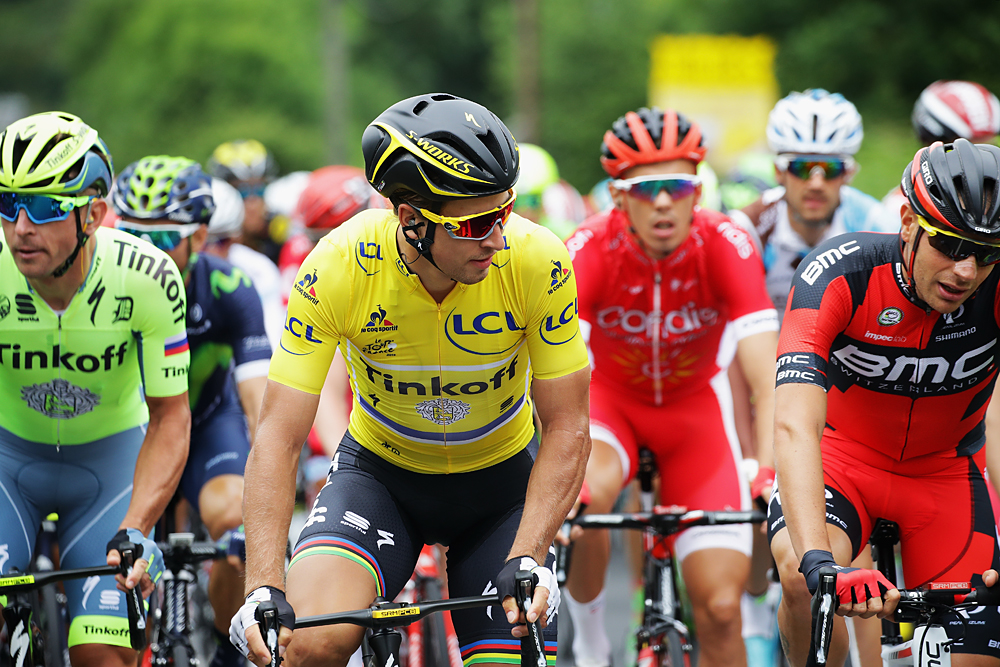
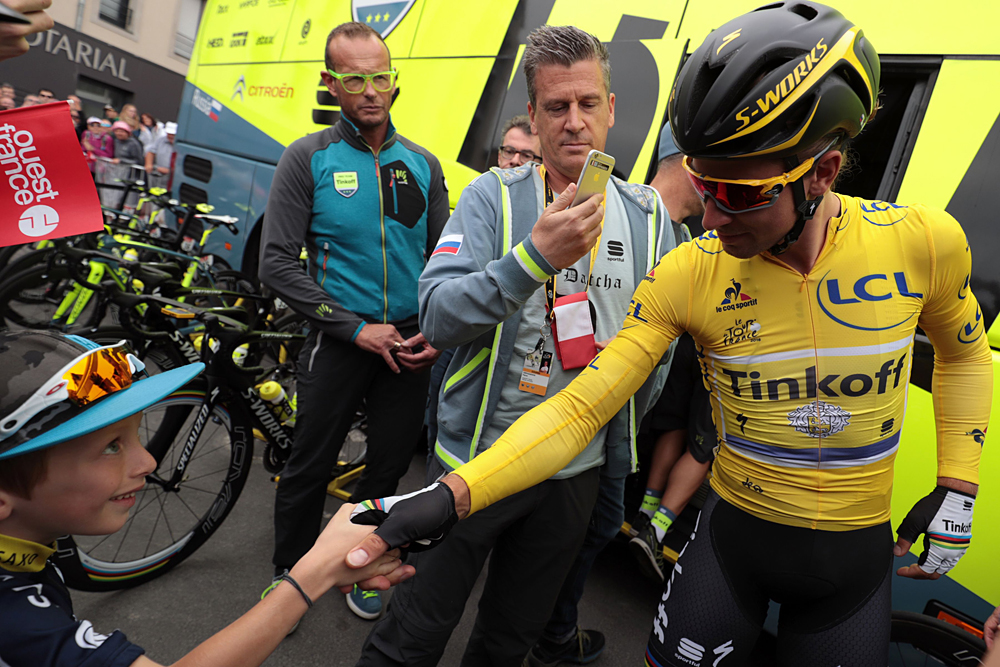
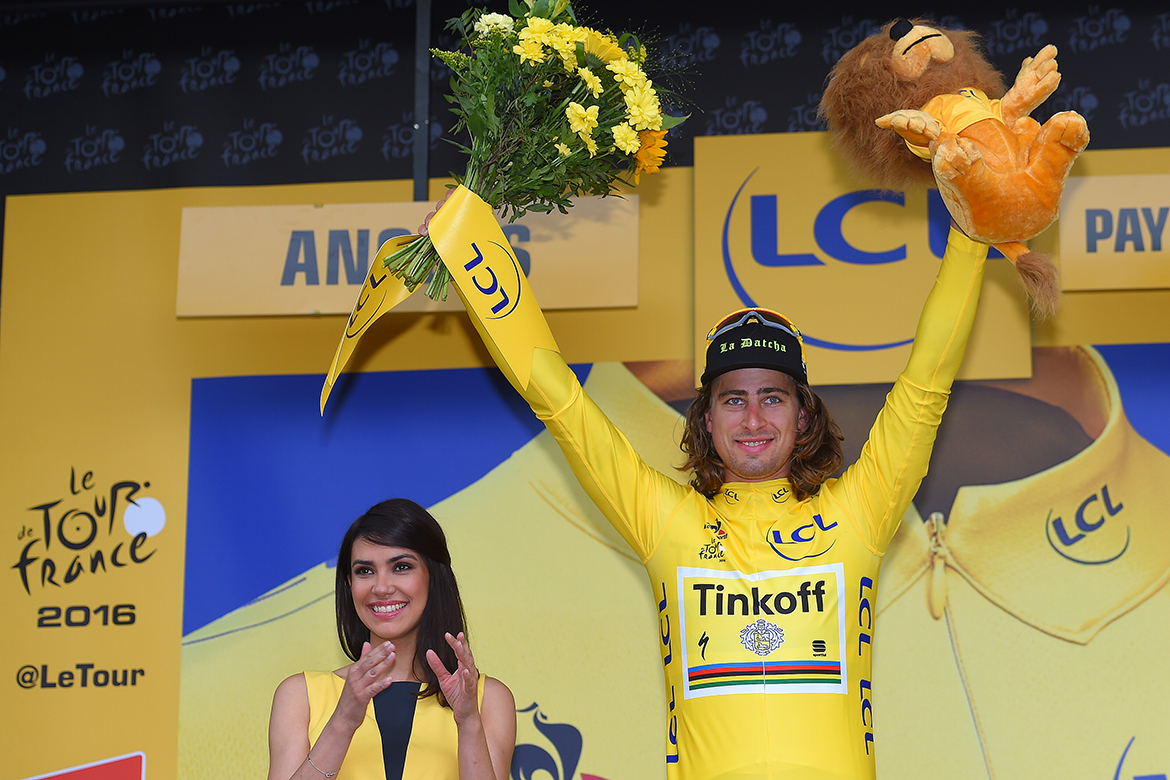
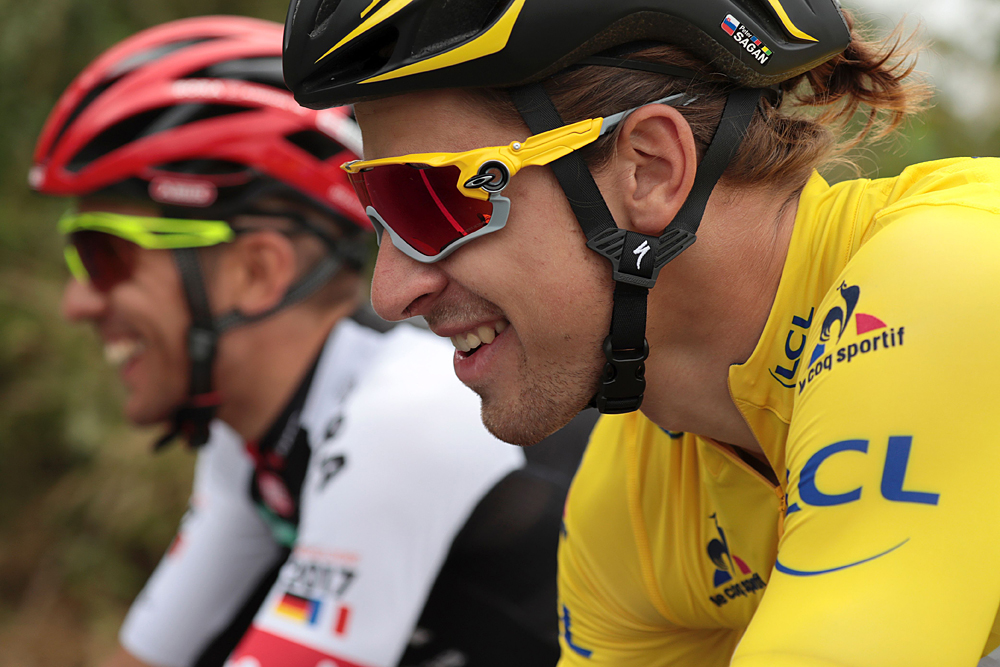
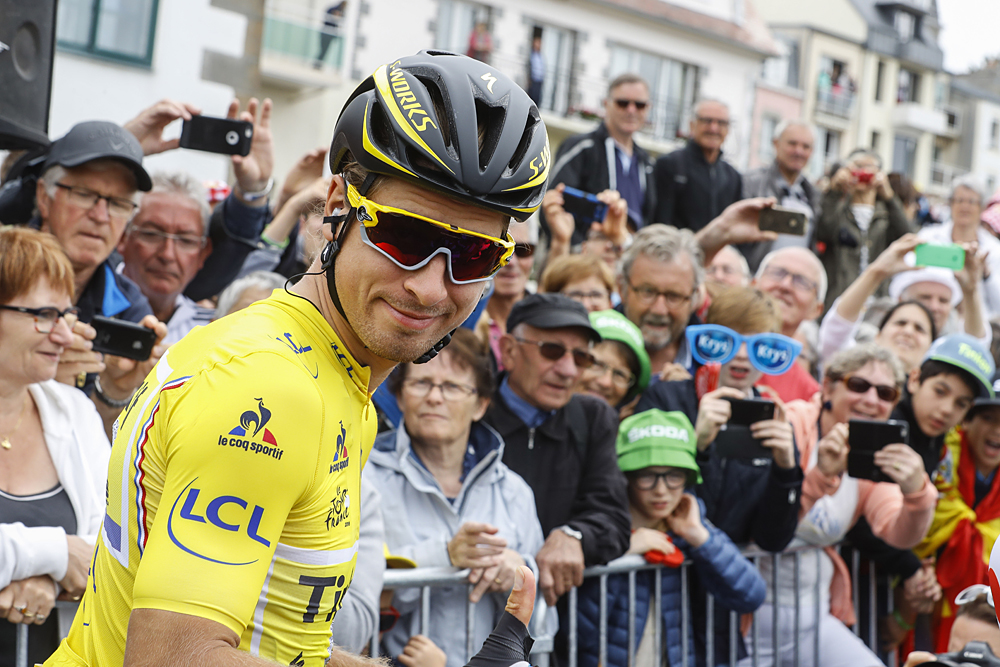
Peter Sagan (Tinkoff) again used his status as world champion and Tour de France race leader to talk about rider safety after the hectic stage 3 sprint in Angers, and the reason why the peloton raced so slowly for the 223km stage.
Sagan ready to fight for yellow jersey on Sunday's stage of the Tour de France
Tour de France: Sagan wins stage 2
Sagan celebrates taking Tour de France yellow but is critical of dangerous riding
Tour de France: Today Sagan was stronger, says Alaphilippe
Peter Sagan's Specialized Venge ViAS - Gallery
Oleg Tinkov celebrates Sagan's victory on video - Tour de France Shorts
Tour de France: A look back at the first three stages - Podcast
As Bernhard Eisel explained to Cyclingnews, the way the Tour de France peloton races on the flat stages has changed in recent years. Now both the sprinters' teams and the GC teams want to ride on the front to protect their riders, avoid crashes and splits in the peloton and then ultimately perhaps try to win the stage. However, their different objectives lead to different ways of riding, resulting in the GC rider teams clashing with the sprinters' teams and raising the tension between them.
Sagan finished fourth in the rising sprint won by Mark Cavendish (Dimension Data) head of Andre Greipel (Lotto-Soudal) and so kept the yellow jersey. He still leads Julian Alaphilippe (Etixx-QuickStep) by eight seconds in the general classification.
After being asked a first question in his press conference with the written media, Sagan quickly turned the tables and put out a question to those involved in running professional cycling. Sagan would like to see the rules changed so that only the sprinter's, who often are better bike handlers and calculate the risk they take, need to contest the sprint finishes.
"There's one question I want to ask the UCI: to turn back the rules on neutralising the last three kilometres. I think it'd be better for cycling, for our safety," he said.
When asked to explain further, he did.
"There are a lot of GC riders who want to do well overall but on the flat stages we want to fight for the sprint, not ride with the GC guys. That's very dangerous," Sagan said.
Get The Leadout Newsletter
The latest race content, interviews, features, reviews and expert buying guides, direct to your inbox!
"The flat stages are for the sprinters, why can't the GC riders be safe behind? I don't understand why they don't do that. It'd be safer for everyone.
"I don't make the rules, I'm just thinking about the safety of the riders. This is a very big reason to be safe. If we are crazy in the sprint, it's our fault but at least we don't make the GC riders crash or the others who don't need to be in the sprint. When I was watching the television when I was young, how many times did Armstrong do the sprint? I don't know. He always stayed in the back and stayed safe. I don't know but I think it'd be better for stages like this."
Why a go-slow?
Like many of the riders, Sagan seemed to enjoy a steady in the peloton on Monday, joking that he was tempted to stop for a coffee during the stage just as riders did in pre-war editions of the Tour de France.
The 223km stage was covered at an average speed of just 37.260km/h, two kilometres an hour slower than the slowest expected speed for the stage. There was suggestion that the riders wanted to make a protest of some kind. Sagan hinted that the riders were in favour of shorter stages during Grand Tours.
"Today was a relaxed day for us, in the break there was just one rider, so we went slow. I was thinking at one time that we'd stop for a coffee like in the old times but there wasn't a bar.
"It was a long transfer stage, with just the last 20km on a fast course. The other days were intense because there were a lot of riders in the break, today there was one, he had 10 minutes, then six, then five. We felt like we we're going to catch him, so we had to go slow.
"I don't think if it's about peace (a truce in the peloton) or not. But it's good if some days you can also relax. If the stage is shorter, it'd be fast. Tomorrow will be longer!" he warned jokingly.
Video Highlights

Stephen is one of the most experienced member of the Cyclingnews team, having reported on professional cycling since 1994. He has been Head of News at Cyclingnews since 2022, before which he held the position of European editor since 2012 and previously worked for Reuters, Shift Active Media, and CyclingWeekly, among other publications.